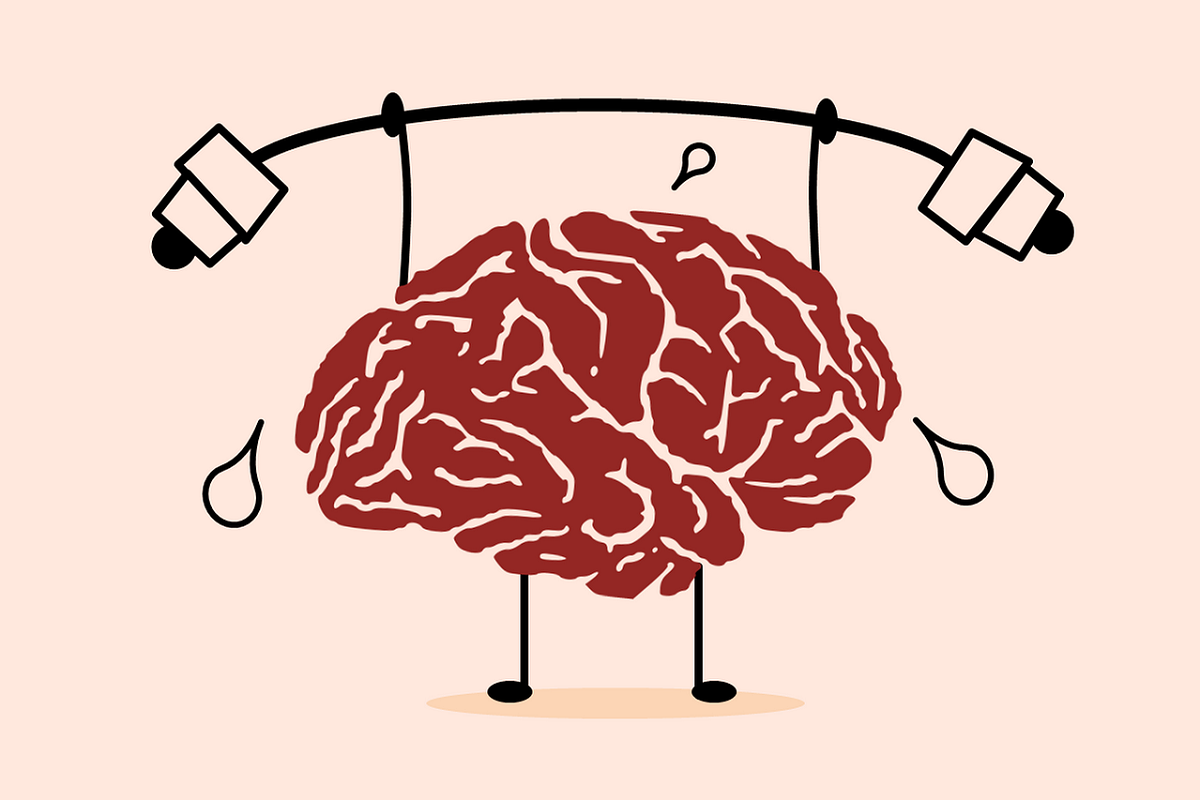
Update 6/8/18 – This post has been updated a couple of times since it was originally written. This is because I have added and reorganised the mental fitness domains as I read more, and tried to organise them into a Mental Fitness Framework, that gets discussed in subsequent posts.
In a previous post, I introduced the concept of ‘mental fitness’ and why it might be important in your life as a student.
As a quick recap, mental fitness is “having a healthy and strong mind to allow you to handle the challenges and opportunities that life puts in front of you, without getting too worn out”.
Similar to the way that physical fitness helps you adapt to the physical demands of your day, mental fitness helps you adapt to the psychological demands of your day.
And being a student at university is very psychologically demanding, both in terms of the study itself, but also fitting that study with other competing life demands: family, friends, work and health.
In this post I want to provide an introductory discussion of what I think are the primary domains of ‘mental fitness’. It should be noted that the definition I provide is a mix of psychological theory and clinical observations of myself and my clinical colleagues. These domains are one of the primary components of my Mental Fitness Framework, which guides a lot of what I write about and talk about with students.
The domains of mental fitness?
I consider there to be 9 domains of mental fitness (this has changed over time for anyone that is watching closely). The ‘domains’ of mental fitness are a bit like the different components of physical fitness: body composition, cardiovascular endurance, strength, flexibility, speed, endurance, agility, coordination, reaction time. They are areas that you can train, in order to become more mentally fit.
I’m not suggesting that someone needs to have mastered all of these 9 domains to be considered ‘mentally fit’, but each domain contributes to overall mental fitness. Individuals can decide which of the domains they want to work on, based on their subjective impression of how well they are doing in that domain, and how likely it is working on that domain will improve their quality of life.
It should be noted that these domains aren’t mutually exclusive. For example, working on one domain (e.g. self-awareness) is likely to have positive impacts on other domains (e.g. meaning and purpose). But breaking them up this way helps describe the variety of ways that a person can invest in their overall mental fitness.

Positive emotion
It’s unrealistic and unhelpful to be in a good mood all the time. Negative emotions are part of life, and help us heal after losses and disappointments.
However it is realistic and appropriate to consider developing your ability to increase the frequency or types of positive emotions experienced. Positive emotions are energising and motivating. Positive emotions help drive us towards stuff: people, projects, goals, helping others.
So positive emotions are helpful beyond simply ‘feeling’ good. They help us achieve. They motivate us to move forward in the world.

Ability to regulate negative emotions
Negative emotions (e.g. anger, fear, sadness) are an integral and unavoidable part of life. Arguably our survival as a species has been aided by the presence of these emotional alarm systems. Even using the term negative emotion feels incorrect, as they emotions can be highly beneficial.
Negative emotions however can get out of control. We can get overly anxious, depressed or angry. They can really start to interfere with our lives.
Growing up, you’ve likely learned a number of strategies for managing difficult emotions. For example, I learned that when I get really angry, I need to take a time out from what I am doing, and sit quietly by myself.
Some of our strategies are good (e.g. meditation), some of them are not so good (e.g. alcohol). In this blog, we will explore different strategies you can use to regulate negative emotions.

Self-awareness and understanding
We each have our own unique set of personality characteristics, experiences, interests, tendencies, obsessions and quirks.
Self-awareness is about having a good understanding of these different parts of ourselves.
Self-awareness helps us identify situations which play to our strengths, but similarly which situations activate our weaknesses. This allows us to make better decisions, but also prepare ahead of time for situations which will be challenging for us.
Self-awareness is achieved through self-reflection – that is, taking the time to reflect on our behaviour, thoughts and feelings in different scenarios. In this blog, you’ll learn various strategies for achieving self-awareness and understanding.

Direction/purpose/identity
Whilst self-awareness and understanding involves an understanding of our thoughts, feelings and behaviours, there is also the question of who we want to be to others. What contribution do we want to make to the world?
Some people know when they are a child what they want to be in life: a doctor, marine biologist, or a no-good layabout. For others it takes a bit longer to work out who or what they want to be.
Having meaning or purpose in life helps us in a number of ways. It helps us focus our time on things that are meaningful to us. It helps buffer against stress, if we know we are working towards something meaningful. It helps us to communicate to others who we are and what we like.
I can’t pretend to tell you what your purpose in life is, but I can guide you towards techniques that might help you identify your own purpose.

Building positive relationships
It is very hard to get things done in life without other people and loneliness is very hazardous to your health and wellbeing.
In contrast, having strong relationships and a sense of belonging (to family, friends, clubs, or work) are powerful health boosts.
Making and maintaining relationships with people can be hard work. Like anything though, building positive relationships is a set of skills that can be learned.
In this blog we’ll explore different methods for building and maintaining positive relationships and finding your sense of belonging.

Caring for your body
Whilst the terms “mental fitness” implies a focus only on your mind and brain, research is increasingly showing that our mental performance is dependent on how well we look after our bodies through diet, sleep and physical activity.
For example, there is growing evidence that diet and exercise can be used as treatments (or effective adjuncts to treatments) for mental illnesses like depression.
In the blog, I will talk to colleagues from different fields (e.g. dietetics, sleep medicine) to find out ways that you can use diet, sleep and physical activity to maximise your mental fitness.
![]()
Financial literacy/ control
Financial literacy/ control is one three core contributors to wellbeing, at least as far as the Australian Unity Wellbeing Index research is concerned.
Financial control is different from objective financial resources. Whilst the two are related (more financial resources typically associated with increased knowledge and sense of control), financial control can be achieved on a relatively modest income. It is more about the confidence and ability to manage finances.
Although I have become a lot more financially savvy in my 30’s and 40’s, I am not a financial counsellor, so I won’t be giving specific financial advice on the blog. However I will be linking to sites and resources that I know are good quality and independent. This includes services within the university.

Ability to modify your environment to increase wellbeing
Whilst it is very powerful to work from the inside–>out in terms of increasing wellbeing (e.g. working on our knowledge, skills, attitudes etc), it is also powerful to work from the outside–>in.
The ability to modify our physical environment in order to improve our wellbeing is often neglected. But there are some powerful ways to do this.
For example, spending more time in nature, or decluttering our work and living spaces are both are associated with improved wellbeing and (in the case of office and work spaces) increased productivity. In this blog I will look at ways to modify your physical environment that have been linked to increased wellbeing.

The skills for academic and work success
So the last domain is a broad one but an important one.
I am going to make an assumption that you being at university means you want to do high quality work, get good grades and use this to get a good or better job.
There are specific skillsets required to be a good student, and then once you are working, to be a good employee/boss/run a business.
As a student it is skills like attention, concentration, time management, scheduling, memory, exam preparation, public speaking, listening, reading and note-taking, academic integrity, information management, and evaluating information.
As a worker it is skills like communication, teamwork, problem solving, initiative and enterprise, planning and organising, self-management, learning, technology, commercial awareness, time management, negotiating and persuading, leadership, literacy and numeracy, stress tolerance, integrity, professionalism, decision making, interpersonal sensitivity, and creativity.
Phew!! those are some long lists.
Now I can’t promise I’ll get through all of these, but I’ll definitely be looking at techniques to improve memory, concentration, ability to learn, and problem-solving – some of the key ingredients of successful work and study. We’ll also look at how to tackle common barriers to success like procrastination, lack of motivation and test anxiety.
What areas might you work on?
As you can see, there are multiple domains of mental fitness, all of which can be developed through practice. In this blog my goal is to introduce you to the techniques, ideas or knowledge required to build each of these areas.
I want to make it clear that I don’t think you have to work every domain, but I’d hazard a guess that most of you would like to work on some aspect of your mental fitness, with the goal of getting better grades and improved job prospects.
Upfront, I am reasonably good at a few of these mental fitness areas (particularly skills for academic and work success, and caring for body) but not so good at others (e.g. building positive emotions and self-awareness/understanding). This means that along with you, I am hoping to learn something from writing this blog and making improvements in my own life.
Coming up next…
In the next blog post I will talk about what I mean by the term “technique”. In the meantime, feel free to leave some comments or contact me if you want to know more about mental fitness, or what we’ll be covering in the blog in the upcoming months.

